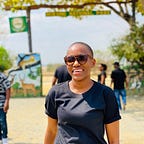Fostering Innovation and Entrepreneurship in Universities: Innoversity Project Bootcamp
It has been a long road of embracing innovation in universities to advance research, improve teaching, enable youths (graduates) to create jobs, and contribute to economic development through the Innoversity project.
Since May 2022, France embassy in Tanzania, in partnership with Sahara Ventures, has been implementing the Innoversity project across three universities, namely the University of Iringa, Sokoine University of Agriculture, and Nelson Mandela Institute of Science and Technology, promoting innovation and entrepreneurship.
You can read more about the project from our previous articles
After the call of application on the Innoversity project, 484 business ideas were submitted from the University of Iringa, Sokoine University of Agriculture, and Nelson Mandela Institute of Science and Technology. The few selected mentors from each university went through the judging process of the ideas and set on 45 business ideas, 15 from each university.
The 45 teams of students selected went through 6 days of Bootcamp.
From the 23rd to the 28th January, the Sokoine University of Agriculture and Nelson Mandela Institute of Science parallel wet through intensive boot camp. The University of Iringa had its boot camp from the 30th of January to the 4th of January February 2023.
The boot camp aimed to achieve four things, (i) Helping the student to ideate and improve the quality of the ideas on feasibility, (ii) desirability and viability; (iii) helping the student to understand what is happening in Tanzania’s Agriculture sector; (iv) allowing the students to prepare (package their ideas) based on the focus areas of the project and helping the semi-finalists to revise their need, approaches, benefits, and competition.
The boot camp provided participants with access to experienced mentors and industry experts who guided them throughout the process. From the interaction during the bootcamp, few lessons useful for entrepreneurs emerged:
- Design thinking is key to innovation.
Design thinking is a problem-solving approach that focuses on understanding users’ needs and developing solutions that meet those needs. During the boot camp, the teams, through the User-Centred Design and Prototyping activity, did rapid prototyping of their ideas by visualizing and designing their solutions by understanding customers’ needs, developing prototypes, and refining ideas based on feedback from the mentors. Given the importance of design in innovation, such was an important lesson for entrepreneurs.
- Teamwork is essential.
“Many ideas grow better when transplanted into another mind than the one where they sprang up.” — Oliver Wendell Holmes.
Teamwork is a critical component of business, especially when it is required to achieve objectives and grow companies. The participants of the boot camp learned to work in teams,share ideas and resources through different team-building activities. Also they learned different roles of the team using the Belbin team roles tool. The activities allow entrepreneurs to leverage the skills and expertise of others, which can be crucial in developing successful businesses.
- Pitching skills are crucial.
During the boot camp, the participants were taught how to craft compelling pitches that highlight the unique value proposition of their businesses. They were exposed to presentations and communication tools for startups. They prepared 5-minute pitches about their products (services), and at the end of the boot camp, participants were allowed to pitch their business ideas to a panel of judges.
The Innoversity Project Bootcamp is not just about developing new business ideas rather to help participants build essential skills such as teamwork, communication, and leadership. These skills are crucial for success in today’s highly competitive and changing business environment.
Key takeaways from the Innoversity project Bootcamp
From the bootcamp outcomes, few takeaways emerged:
- Potential lack of innovation culture in universities
Of over 400 business and business ideas collected, less than 20% of them incorporated innovation; Their minds think more in a local context. During the boot camp, mentors had to refine the ideas and business making them more innovative through one on one sessions
- There is still a big mismatch between academic institutions and the market’s needs
The education system in Tanzania needs to adequately prepare students for the growing and changing world of innovation rather than merely prioritizing academic excellence. . Overemphasis on the latter has the potential to perpetuate rote learning rather than critical thinking, innovation and problem-solving.
During the boot camp, one of the case stories from one of the universities was that a particular company needed an expert, and the best student academically was recommended; after sometime of working with the student, his feedback was “He was not skilled enough for the position.”
This means more work is needed if universities and other stakeholders are to prepare and produce graduates with practical, technical and soft skills needed in the 21st century.
Following the intensive training, the boot camp culminated with a demo day, where participants pitched their ideas to a panel of judges.
10 businesses out of 15 from each university (30 businesses in total) made it to the next stage. Some of the startups are expected to visit France for exchange programs to help them get more exposure, ideas, and experience, which can help to improve their products.
You can get more information about the Innoversity project through
